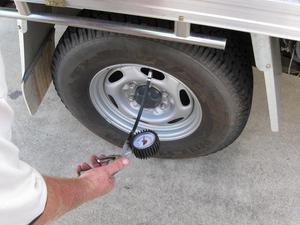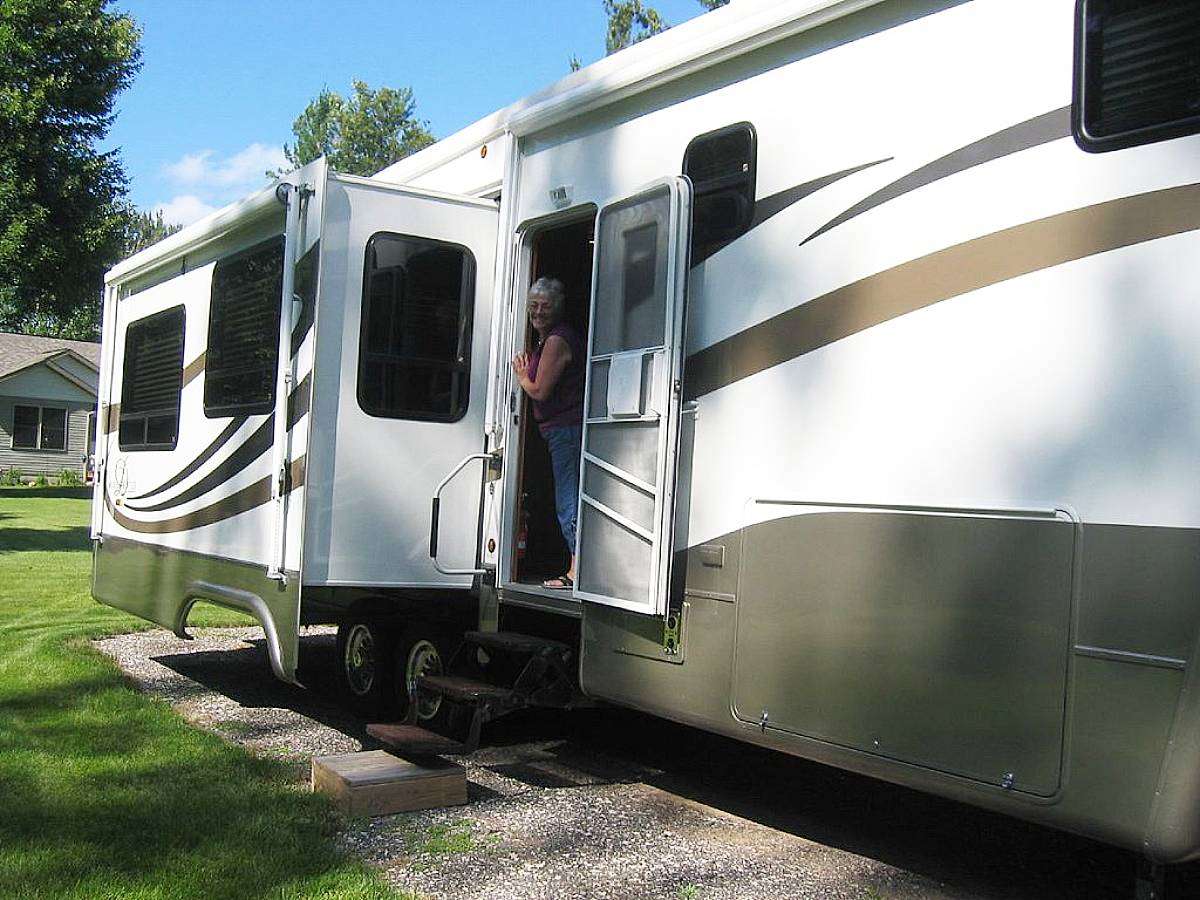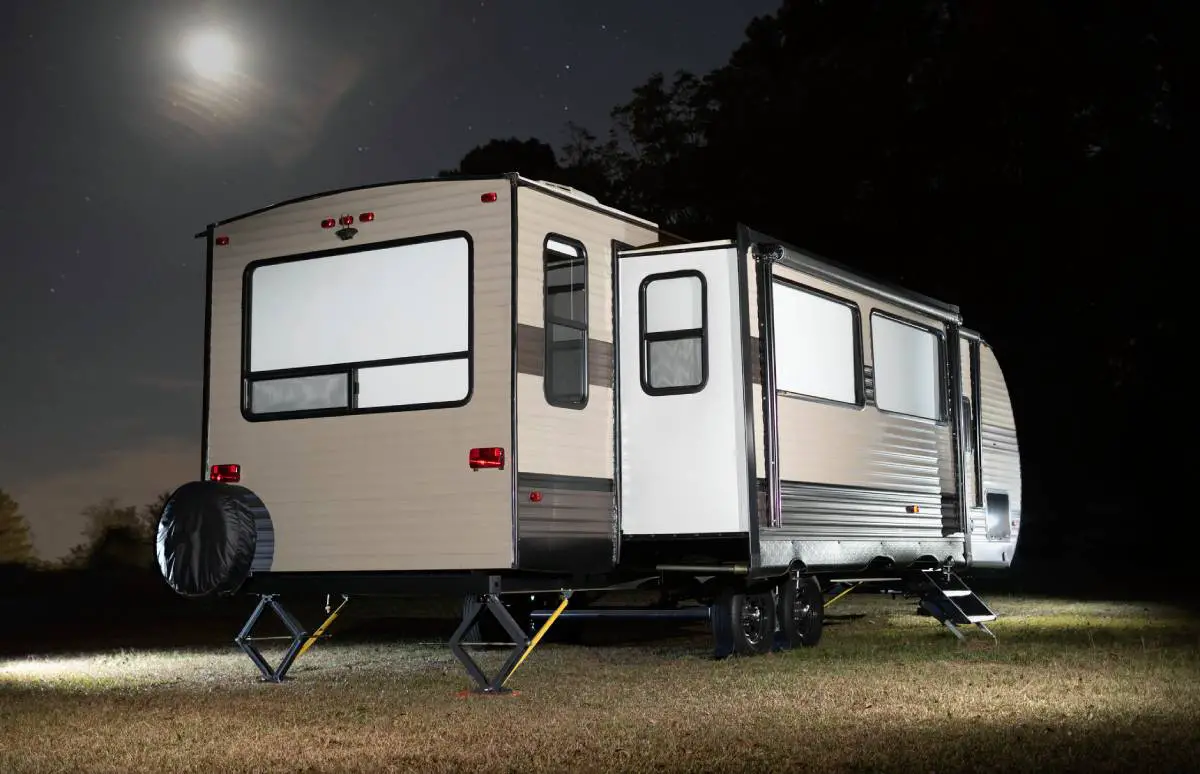 Tires are the foundation of your RV that enable you to travel safely down the road.
Tires are the foundation of your RV that enable you to travel safely down the road.
As an RVer, few things are more important than tire pressure monitoring is.
Whether you do it with a tire gauge or an automatic system, your tires are all that stand between you and disaster.
A blowout can send you careening out of control — especially when it happens on a front or steering axle of a motorhome!
The rapid deflation of a trailer tire can set up a swaying situation where your trailer can overpower your tow vehicle and cause an accident.
Of course, these are worst case scenarios. However, they do happen, and many RVers have had their road trips severely impacted by accidents resulting from catastrophic tire failures.
Here’s what you need to know about RV tire pressure monitoring systems…
Preventative RV Tire Maintenance
When traveling, doing a daily walk around can give you a good indication whether your tires are in good shape or not.
A keen eye can detect if one is sitting lower than the others. Thus, you could possibly catch a slow leak before you even head out on the road.
Checking all the tires for proper inflation every 30 days or so can verify that all tires are carrying their share of the load. Tire wear, longevity, and even handling can all be dramatically affected if any of your tires are not kept up to their recommended inflation pressures.
This is even more important with most motorhomes, because they usually have at least one axle equipped with dual wheels. Looking at the outward appearance of 2 tires in dual wheel application won’t indicate if the inside dual is suffering from low pressure, or for that matter, if it’s completely flat.
It’s well documented that 9 out of 10 tire failures are due to not maintaining proper inflation levels.
The Undetected Slow Tire Leak
So what happens when you’re just starting your intended long day of driving, and you happen to drive over a nail just as you’re pulling onto the highway?
Deflation will be slow but steady — nothing noticeable until you’ve been at highway speed for a few hours. As tire pressure drops, heat increases. Underinflated tires will generate heat because there is more rolling resistance. The tires will start flexing more and more, because their internal air pressure no longer can support the weight of the vehicle.
When the heat reaches a critical level, you are likely to experience a blowout or immediate disintegration of the tire. This could easily create an out-of-control situation, or at least force you to pull over on a dangerous and fast-paced interstate. It could even leave you stranded many miles from assistance.
With dual wheels it’s even possible that when one tire fails it will take the one alongside it out as well.
RV Tire Pressure Monitoring Systems
What can you, the RV driver, do to recognize this growing potential for disaster while you’re driving?
Well, if your RV is equipped with a tire pressure monitoring system, as soon as the pressure starts to fall on any of up to 12 tires being monitored, it will alert you. This audible and visible warning will allow you to slow down, pull off into a safe location, and address the issue calmly without being placed in danger.
Hopkins Tire Pressure Monitoring Systems are a fairly new innovation that can remove much of the worry from your driving experience. With sensors (which also double as inflation valve caps), wireless technology sends pressure readings to the main terminal located on your dashboard. This will alert you when pressure drops in any tire.
There are a number of similar systems available, here are a few worth considering:
With a tire monitoring system in place, you can cruise with confidence knowing the foundation on which your traveling is being well monitored and will alert you to problems well before they have the opportunity to become disastrous.
This video shows how easy it is to install a tire pressure monitoring system on your RV:
This video shows why to install a tire pressure monitoring system on your RV:
More About Tire Pressure Monitoring For RVers
I’ve been involved in RVing for over 50 years — including camping, building, repairing, and even selling RVs and motorhomes. I’ve owned, used, and repaired almost every class and style of RV ever made. I do all of my own repair work. My other interests include cooking, living with an aging dog, and dealing with diabetic issues. If you can combine a grease monkey with a computer geek, throw in a touch of information nut and organization freak, combined with a little bit of storyteller… you’ve got a good idea of who I am. To date, I’ve shared my RV knowledge in over 300 articles here at The Fun Times Guide! Many of them have over 25K shares.




